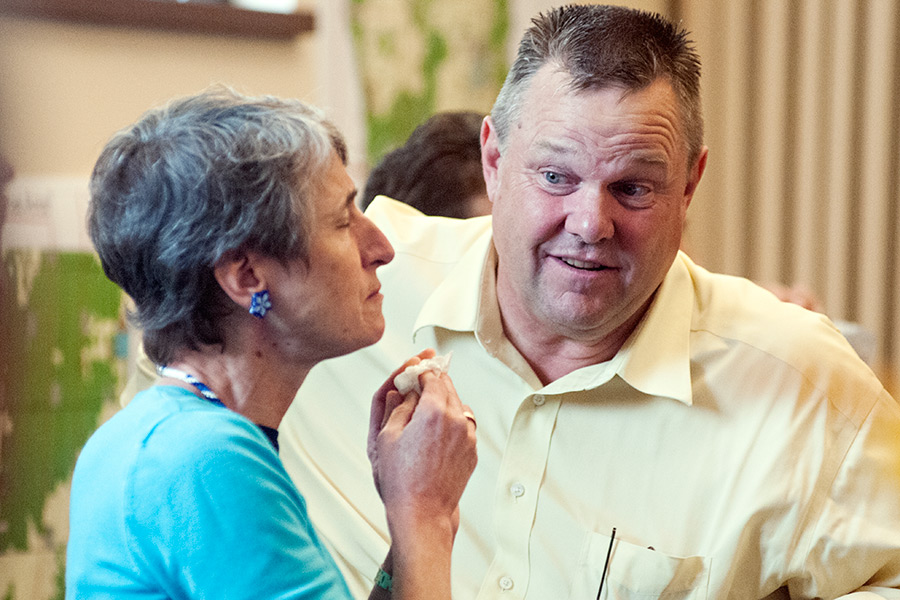HELENA — Interior Secretary Sally Jewell on Tuesday used Montana’s scenic Hauser Lake as a backdrop while urging Congress to permanently reauthorize a key funding source for the country’s parks and recreation system.
Federal officials have cobbled together a temporary funding extension until Congress can decide whether to rededicate money from oil and gas royalties for the Land and Water Conservation Fund.
Jewell made her plea at Devil’s Elbow Recreation Area northeast of Helena at an event billed as a kickoff to the summer recreation season.
The U.S. Senate has already moved to reinstate funding as part of a broader energy bill, but the House has yet to act.
The conservation fund, which was established in 1965, lapsed last year and Congress later extended it for three years. Historically, the program has received $900 million a year through royalties paid by energy companies that drill offshore for oil and gas. In recent years, that amount was reduced to $400 million.
Jewell was joined by U.S. Sen. Jon Tester, a Montana Democrat, who helped push the reauthorization through the Senate.
“Outdoor recreation in Montana is more than a hobby. Quite frankly, it’s becoming one of Montana’s fastest-growing industries,” Tester said on a clear day as a slight wind pushed ripples across Hauser Lake.
He called Montana’s outdoors the lifeblood of many of the state’s communities, supporting some 64,000 jobs.
The federal government purchased Devil’s Elbow Recreation Area in 1998 from the Montana Power Co. and other private landowners using $600,000 in conservation funds.
The pine-dotted landscape now features about 45 campsites and miles of hiking trails across 20,000 acres along the Missouri River and Hauser Lake.
The Interior Department recently released $95 million in fund money, nearly $900,000 of it destined for Montana, Jewell said.
Over the years, Montana has received some $540 million from the fund to expand recreational opportunities across the state and protect wide expanses of wildlands.
Last month, Jewell announced a joint project with the Commerce Department to study how outdoor recreation contributes to the nation’s economy. Her office estimated that $5.8 billion is pumped into Montana’s economy every year by the outdoor recreation industry.
In a recent speech, she said natural areas are disappearing at an alarming rate, particularly in the West.
Immediately after her stop in Helena, Jewell headed for the Blackfeet Reservation in Browning to meet with tribal leaders about a land buy-back program.
Montana Republicans and those connected with the state’s coal industry had urged Jewell to visit communities they say could be devastated by a prolonged moratorium on new coal leases, but the secretary said it was not part of her itinerary this time.
She asserted that the moratorium won’t harm the state’s economy because current leases won’t disrupt the coal industry’s viability for at least two decades.
“There’s 20 years of supply right now under lease in Montana,” she said. “So this pause on the leasing … will have no impact on coal jobs or coal mines staying open or power plants continuing to operate. I want to make that clear.”
Tester said he and Jewell met for an hour with unions, some of which Tester’s staff said have a stake in coal jobs, to talk about issues and challenges in the region.
